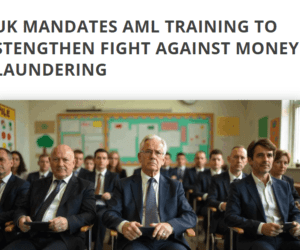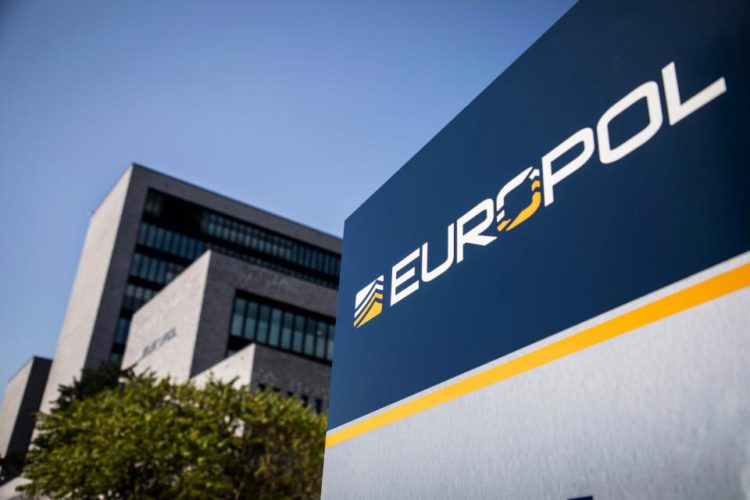
Ilze Znontina
AML Intelligence Expert Columnist
AS THE months roll by the illusion of returning to an old-world order in the face of Russia’s invasion of Ukraine has very much faded.
The harsh reality is that the situation remains tense and uncertain as Europe marks the third year of war.
In many ways, as we watch on, the ancient Latin saying, “If you want peace, prepare for war” holds a strong resonance. Indeed it leads me to wonder if everyone in Europe has truly understood how crucial it is not only to sustain military, humanitarian, and economic support for Ukraine but also to mobilize all resources to safeguard our regional security.
This requires a readiness to sacrifice comfort, reconsider outdated values, keep eyes wide open, think collectively rather than individually, and collaborate. Bureaucratic delays are not acceptable, as every delay and complacency incurs a high price.
In these pages some time ago I predicted that efforts to confiscate frozen assets would continue to reveal challenges related to the lack of harmonized laws, transparency, collaboration, and insufficient enforcement capacity. Unfortunately, this appeared to be a true prediction.
‘Russia is actively working to build a coalition of countries willing to collaborate with the Kremlin in defiance of international sanctions’
Very little progress has been made to move from the passive passing of sanctions to their proactive and aggressive enforcement, combined with the use of economic coercion to constrain trade with Russia.
Meanwhile, on the international stage, Russia is actively working to build a coalition of countries willing to collaborate with the Kremlin in defiance of international sanctions. Simultaneously, sanctioned Russian oligarchs persist in filing lawsuits, with the latest notable one submitted to the International Centre for Settlement of Investment Disputes (ICSID) against Ukraine for over a billion dollars concerning the nationalization of Sense Bank (formerly Alfa Bank).
These actions indicate that our strategy to convince the Russian regime, based on a cost-benefit calculation that they can only lose, has not yet succeeded. Russia and its henchmen will push boundaries as far as they are allowed.
AMLA
Regarding another long-awaited reform, I had hoped that non-delayed adoption of AML Package as well as discussions on AMLA’s role, its KPIs, and other essential aspects would take precedence over debates on its physical location, paving the way for a stronger and more united Europe.
Unfortunately, it has taken until January last to agree the new AML Regulation and Directive package – while the location of AMLA (Frankfurt) was only decided last month.
‘Europe can still go further by positioning AMLA as the central EU agency responsible for sanctions’
Although it took almost four years after the European Commission first presented its AML Reform Plans in 2020, I applaud this achievement, particularly for some last-minute amendments, such as adding new obliged entities and laying the basis for amending AMLR with rules for obliged entities to mitigate and manage the risks of non-implementation and evasion of TFS.
However, in my opinion, Europe can still go further by positioning AMLA as the central EU agency responsible for sanctions. Right now the agency will be monitoring the enforcement of sanctions by banks but it could achieve a lot more with a greater sanctions focus and enforcement ability.
Currently, fragmentation, both domestically and at the European level, is one of the biggest obstacles to the effective implementation of sanctions. Achieving such a political decision would have a dual effect.
First, establishing or acknowledging a single point responsible for coordinating and collaborating with national, regional, and international stakeholders would allow the harmonization of different national efforts. It would also provide a swift and reliable feedback loop between the public and private sectors. Secondly, encouraging national parliaments to centralize and thus make effective their efforts not only in the implementation of sanctions but in the overall anti-financial crime framework.
Regrettably, all these tasks, including long-awaited support in coordinating cross-border financial intelligence analysis by FIUs or supervision of high-risk financial entities, remain a distant vision for the future, as not even all initial steps toward progressing the AMLA process have been taken.
‘Do we, Europeans, genuinely have the luxury of being so relaxed in implementing such substantial reforms?’
The current intentions are for AMLA to be operational in Frankfurt by the beginning of 2026, which is two years later than initially planned, or, in other terms, eight years after the first wave of scandals involving European banks orchestrating money laundering emerged.
Observing this lengthy and intricate process compels me to persist with the same recurring questions: Do we, Europeans, genuinely have the luxury of being so relaxed in implementing such substantial reforms?
Does it suggest that financial crimes have become less urgent than they were 5-6 years ago, overshadowed by other concerns? Or is it possible that politicians either fail to recognize or choose to ignore the direct impact of financial crimes on economic and national security?
In June 2023, the European Union (EU) introduced the European Economic Security Strategy, closely following the G7 Leaders’ Statement on Economic Resilience and Economic Security issued in May 2023 during the Hiroshima Summit. Similar strategy has been previously adopted by Japan, while several other countries are currently in the process of drafting such documents.
In addition on January 24, 2024, European Commission published Communication from the Commission to the European Parliament and the Council “Advancing European economic security: an introduction to five new initiatives’’
The European Commission’s initiative aims to address critical risks, encompassing the resilience of supply chains, energy security, and the physical and cyber-security of critical infrastructure, along with technology-related concerns.
The strategy outlines its core objectives, emphasizing the promotion of EU competitiveness, safeguarding economic security, and fostering global partnerships. While the document does not explicitly mention it, reading it in conjunction with similar documents and commentaries strongly suggests that a key underlying objective is the de-risking of China.
This strategic initiative is intelligent and much-needed, representing an effort to navigate the risks posed by the ongoing technological transformation and the so-called fourth industrial revolution, where security risks are becoming increasingly complex. Essentially, it underscores Europe’s commitment to addressing the security threats of the 21st century.
I am of the opinion, however, that addressing new threats is insufficient as long as we have not resolved the lingering challenges of the 20th century.
Today’s most significant and direct threat to Europe is Russia; and it has been so for at least the last 25 years. Another equally, but perhaps even more important, threat is our complacency—a peculiar aimlessness, significant comfort in personal conveniences, and, above all, the difficulty in accepting the new reality.
We are aware, yet reluctant to admit openly, that we lack a precise plan to counter Russia’s aggression. It has engaged in military attacks on our future member states and orchestrated constant hybrid attacks on existing ones.
Additionally, it has figuratively taken a few European countries hostage, acting as Trojan horses that impede Europe’s ability to resist aggression. We still do not have a clear plan on effectively pursuing those who circumvent or avoid sanctions and handling frozen assets. The leaders of major European countries have not clearly stated that Ukraine’s freedom, without losing any of its lands, is not only a moral imperative but also a fundamental element of Europe’s security.
‘The impact of financial crimes on the physical and cybersecurity of critical infrastructure, as highlighted in a recent FATF report, encompasses consequences such as ransomware attacks on critical services’
As long as we contemplate changes slowly, softly, and overly cautiously, we risk being trapped in the past, forfeiting our ticket to join others at the global power play table. Genuine reforms in European economic and military security demand political commitment, leadership, and process ownership, along with substantial financial investments.
This involves enhancing military capabilities for external defense and investing in the improvement of law enforcement, FIUs, prosecutors, and others dealing with organized and economic crime. It also necessitates a thorough understanding of risks, targeted awareness campaigns, and, above all, structured, innovative multilateral collaboration mechanisms.
With this, I perceive that the document bearing the name of the European Economic Security strategy is more of an initiation of a conversation on how Europe could better address existing and emerging security issues.
It is particularly crucial to emphasize that the Strategy falls short in recognizing that financial crime is integral to economic security and serves as a component of broader national/regional security, especially at a time when our freedom is at stake. Effectively combating financial crimes can significantly enhance the mitigation of critical risks outlined in the strategy.
Crimes such as trade-based money laundering (TBM), fraud, corruption, and illicit finance disrupt supply chains, resulting in delays, increased costs, and reputation damage. In the realm of energy security, financial crimes impede efficiency and infrastructure investment.
They can also be employed to circumvent sanctions, enabling designated countries to access global financial systems. The impact of financial crimes on the physical and cybersecurity of critical infrastructure, as highlighted in a recent FATF report, encompasses consequences such as ransomware attacks on critical services.
Furthermore, various forms of financial crimes, including identity fraud, ransomware attacks, email and internet fraud, and attempts to steal financial information, pose threats to technology security.
The recognition of economic and financial crime as a profound threat to national security has been underscored by Europol and echoed, for example, in the UK Parliament and the US-hosted Parliamentary Intelligence-Security Forum.
The illicit investment of laundered profits distorts markets, hampers economic development, and fuels corruption, thereby intensifying criminal activities. Criminal networks exploit both private and public entities, infiltrating all levels of society and impacting sectors of critical importance.
The global dimension of financial and economic crimes, as outlined by Europol, underscores the imperative for a collaborative, cross-border approach. Criminal operators from outside the EU exploit gaps in anti-money laundering standards and law enforcement cooperation, coordinating activities from jurisdictions with deficits in international standards. These activities pose a significant risk to the stability and prosperity of the EU, demanding a truly global cooperative effort beyond the realm of law enforcement.
Europe faces a primary challenge of fragmented information and weak collaboration, impeding a collective understanding of available data. A strategic approach with clear objectives, fostering collaboration mechanisms, and overcoming barriers is crucial.
Addressing economic security challenges requires enhanced collaboration among key stakeholders, extending beyond current partnerships to include various agencies like state security, anti-corruption, and tax administrations that talk not only to each other and share relevant information hopefuly reaching beyond just a strategic level but also build ssynergies with those who are involved in defining European Economic Security.
Topics for discussion within this collaborative platform could include defining ‘economic security,’ assessing risks, analyzing the impact of economic and financial crime, and improving communication to convince populations to invest in security. And above all, the guiding principle remains: “United we stand, divided we fall’’.
References:
[https://eur-lex.europa.eu/legal-content/EN/TXT/PDF/?uri=CELEX:52023JC0020.
https://www.mofa.go.jp/mofaj/files/100506767.pdf
ILZE INSIGHT: Attempts to confiscate frozen assets are set to reveal some very uncomfortable truths about the absence of harmonised laws across the west
https://www.reuters.com/world/europe/no-quick-eu-path-give-ukraine-profits-sanctioned-russian-assets-2023-12-08/
https://www.europarl.europa.eu/news/en/press-room/20240117IPR16880/deal-on-a-single-rulebook-against-money-laundering-and-terrorist-financing
https://eur-lex.europa.eu/legal-content/EN/TXT/PDF/?uri=CELEX:52023JC0020. In addition on January 24, 2024, European Commission published Communication from the Commission to the European Parliament and the Council “Advancing European economic security: an introduction to five new initiatives’’
https://www.mofa.go.jp/mofaj/files/100506767.pdf
FATF report “Countering Ransomware Financing, March, 2023, ”https://www.fatf-gafi.org/en/publications/Methodsandtrends/countering-ransomware-financing.html
Europol report, “The Other Side of the Coin: An Analysis of Financial and Economic Crime, European Financial and Economic Crime Threat Assessment 2023”, December, 2023, https://www.europol.europa.eu/publications-events/publications/other-side-of-coin-analysis-of-financial-and-economic-crime
Share this on:
Follow us on:








